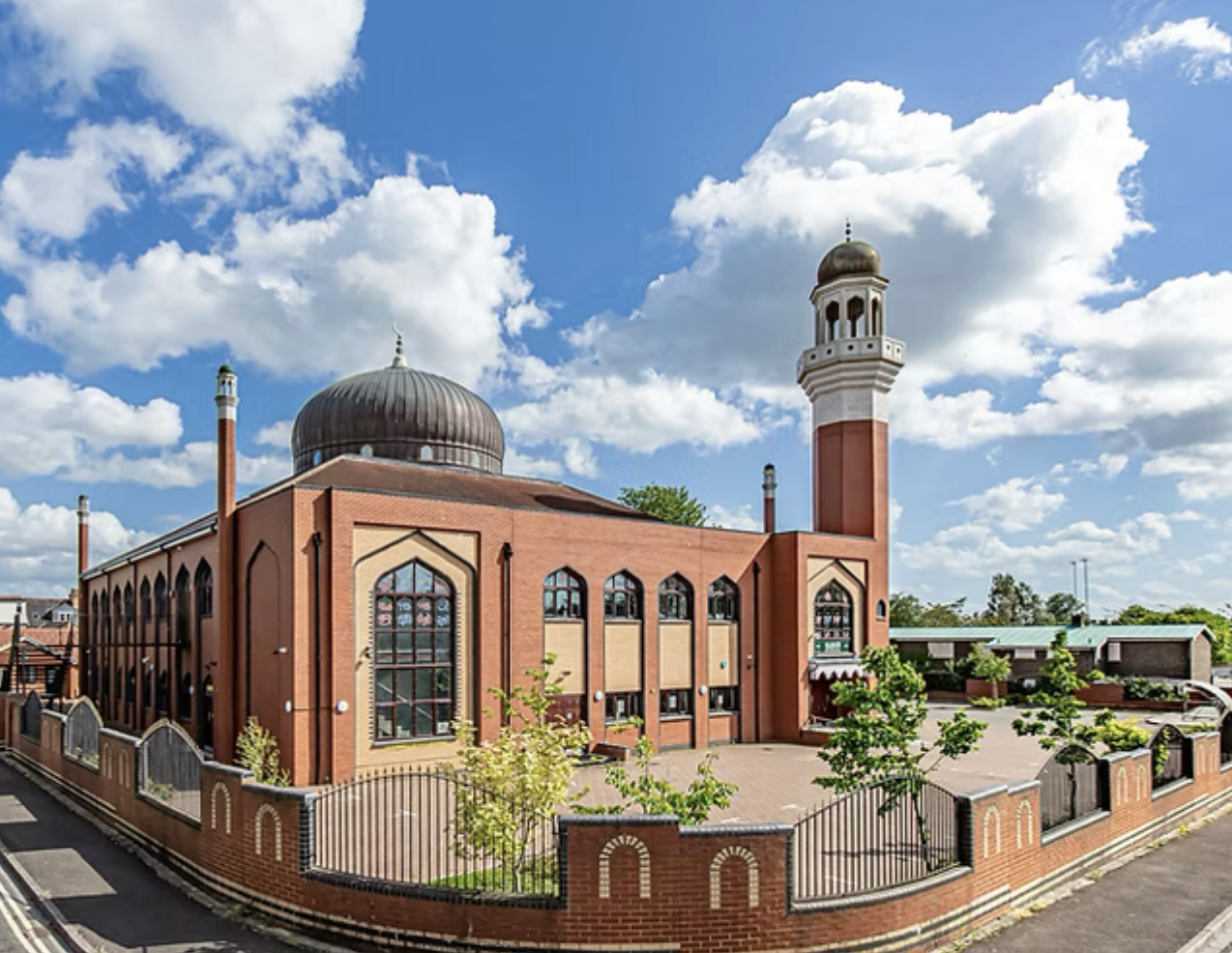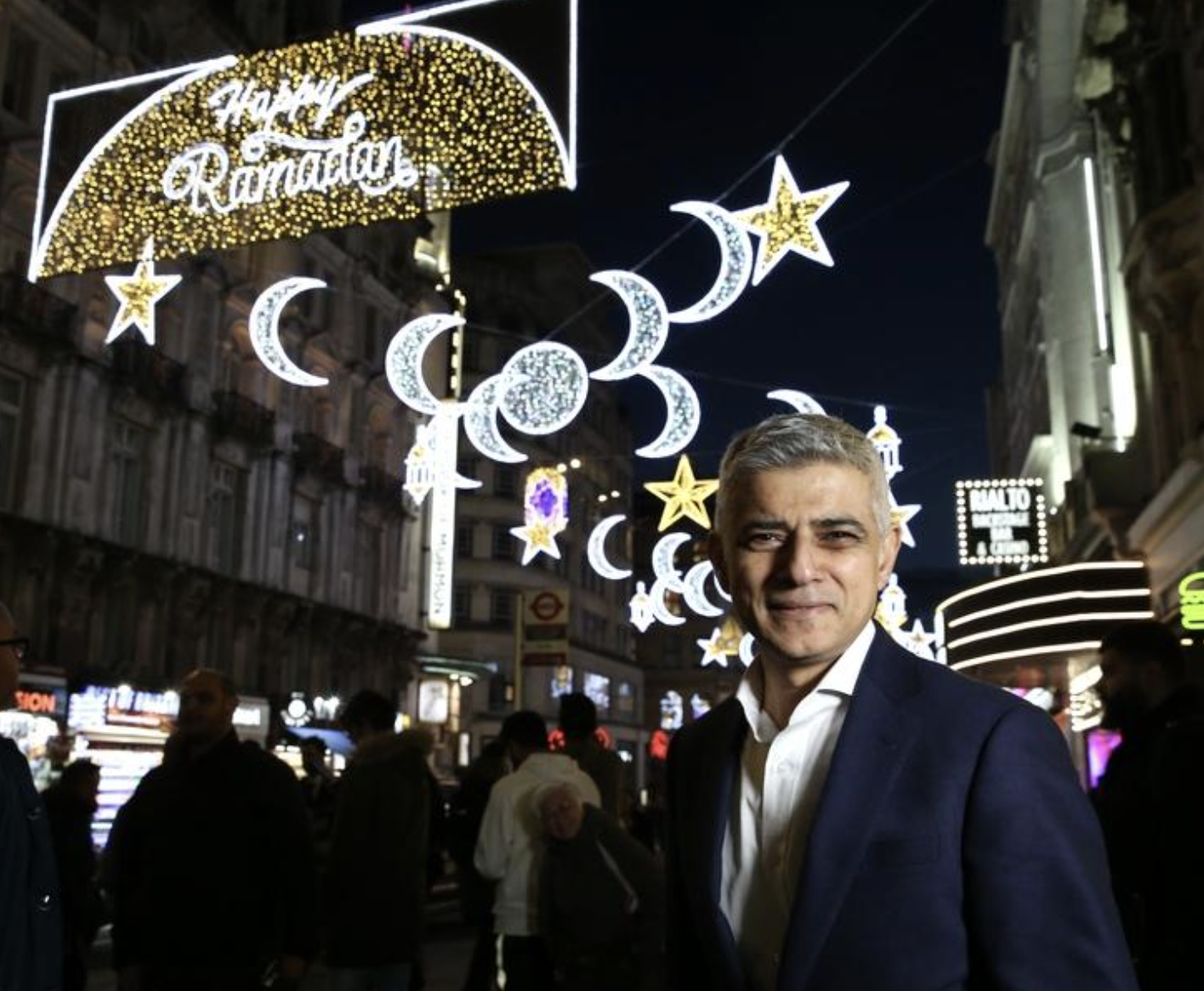In view of the contrast between Western and Islamic views of the world, it is predictable that with the arrival in the United Kingdom of a large number of immigrants brought up within Islam, Britain’s social fabric has been battered by cross-purposes. The British people long to believe with well-meaning tolerance that Islam is just another religion like Christianity. In their charity law, for instance, they cling to the universalist notion, formulated in an overwhelmingly Judaeo-Christian context, that all religious causes must be worthy of support. The Charity Commission describes the “advancement of religion” as a charitable aim of “public benefit”. But problems arise if “religion” is extended to include Islam, as to avoid discrimination it must be.
The Quran is clear that charity should be extended only to fellow Muslims within the Ummah, not to unbelievers. Moreover, there are many verses in the Quran which reflect Mohammed’s warrior culture of sex-slavery. These flatly contradict the principles of British law. The historical roots of the differences between the roles of women within Islamic and Western cultures lie very deep. The earliest Muslims were young men, eager for loot in the form of wealth or sex-slaves. As Mohammed says in the Sira or Life of Muhammad (c.760CE): “booty was made lawful for me, as to no prophet before me” (trans. Guillaume, p. 326). The earliest Christians, in contrast, were slaves and women, attracted by a philosophy of personal salvation and universal humanity.
Enjoy independent, ad-free journalism - delivered to your inbox each week
In the Gospels, though we see only glimpses, Mary, mother of Christ, the sisters Mary and Martha, and Mary Magdalene feature as psychologically complex beings. In Islam, by contrast, with the partial exception of Mohammed’s child bride Aisha, women feature without personalities as wives or sex slaves. Al-Bukhari, for example, explains in a Hadith how Mohammed came to marry his wife Safiyya:
Anas said: … “We defeated Khaibar, captured the captives and the booty was gathered. Dihya came and said, ‘O Prophet of Allah! Give me a slave girl among the captives. The Prophet said, ‘Go and take any girl slave.’ He took Safiyya bint Huyai. A man came to the Prophet and said, ‘O Apostle of Allah! You gave Safiyya bint Huyai to Dihya and she is the mistress of the chief of the tribe of Quraiza and An-Nadir and she is suitable for no one but you.’ So the Prophet said, ‘Tell him to come with her.’ So Dihya came with her and when the Prophet saw her, he said to Dihya, ‘Take any girl slave among the captives except her.’ Anas added: ‘The Prophet freed her from her slave condition and married her.”
The National Secular Society provides endless examples of misunderstandings based on the contradictions between Western and Islamic notions of “humanity”. The Charity Commission continues to give large sums to Islamic charities, and those charities continue to be baffled when they are told that they are breaking the law by preaching in mosques that blasphemers, apostates, and Ahmadi Muslims should be killed, or that Jews are the source of all the ills of the world, or that women must be obedient and under all circumstances obey their husbands. In Britain these are not considered of “public benefit”, as they would be in Pakistan or Iran, or in any country within the UN Organisation of Islamic Cooperation.
The British emphasis on the element of personal sincerity in religious conversion caused a scandal when it emerged that refugees were persuading gullible priests that they had accepted the doctrines of the Incarnation and Salvation and “converted”, only for it to become apparent that they had no idea whatsoever about the details of New Testament theology. Their motive, crudely, was to gain refugee status. If they were returned to their Islamic countries of origin, as they were aware, they would as Christians be persecuted.
Other confusions indicate a coarsening of Britain’s moral culture. The English word “martyr” has recently almost entirely reversed its meaning. In Christian thought, it is essential that the “martyr” involves no other victim. Only the martyr dies. However, in the recently imported ideology of Islam, the more “infidels” the suicidal “martyr” can take with him into death, the more glorious is his (or her) sacrifice. Saint Thomas spends much of his time in T.S. Eliot’s Christian classic Murder in the Cathedral (1935) agonizing over his motives. Is he perhaps deceiving himself and actively seeking death out of sinful spiritual pride? No such qualm would ever occur to a suicide bomber who takes the path of “martyrdom” in Gaza or Jerusalem or London.
Relatively recently in Britain, they have, at times willfully, lost any sense of the longer historical perspectives still vivid within the world-view of Islam. Until the twentieth century, Westerners were aware of Islam as a threatening cultural Other to be feared. However dimly, they were aware of the Islamic expansion in the millennium following Mohammed’s death which destroyed the world of classical Greek and Latin antiquity so crucial to Western thought. But now we disregard the stories of the recumbent crusaders in churches across the nation, each with his futile contribution to the West’s belated resistance to Islam’s conquests.
Edward Gibbon imagined the fate of Britain had the armies of Islam defeated the Frankish King Charles Martel in 732, as they could easily have done, and gone on to conquer Northern Europe. In such an event, there would have been no Christian Middle Ages in the West, no Renaissance, and no Enlightenment:
A victorious line of march [of the Islamic forces] had been prolonged above a thousand miles from the Rock of Gibraltar to the banks of the Loire; the repetition of an equal space would have carried the Saracens to the confines of Poland and the Highlands of Scotland; the Rhine is not more impassable than the Nile or Euphrates, and the Arabian fleet might have sailed without a naval combat into the mouth of the Thames. Perhaps the interpretation of the Koran would now be taught in the schools of Oxford, and her pulpits might demonstrate to a circumcised people the sanctity and truth of the revelation of Mahomet (Decline and Fall of the Roman Empire, chapter 52).
In modern-day Islamist discourse in mosques across the Middle East and throughout Europe, the future which Gibbon feared is still in vivid prospect. The recapture of Al-Andalus is, we are told, bound to come, and Rome, Paris, London, and New York will also inevitably submit to Islam. Though forgotten by non-Muslims in Britain, the centuries-old unresolved war between Islam and Christendom or the West is as alive in the consciousness of the Islamic world as it has ever been. Jihad continues.
In modern-day Islamist discourse in mosques across the Middle East and throughout Europe, the future which Gibbon feared is still in vivid prospect. The recapture of Al-Andalus is, we are told, bound to come, and Rome, Paris, London, and New York will also inevitably submit to Islam.
With the catalyst of mass immigration from Islamic countries, Gibbon’s chilling vision of an Islamised Oxford, England is inevitably materializing, and in a way he could not possibly have imagined. What, for instance, would Gibbon have made of Tariq Ramadan, the grandson of the founder of the Muslim Brotherhood, who held the Chair of Contemporary Islamic Studies at St Antony’s College, Oxford, in the University’s Faculty of Theology and Religion? While his professorial colleagues, Richard Dawkins among them, concerned themselves with the time-honoured Western pursuit of truths about the world, Ramadan devoted his academic energies to promoting the ideology of Islam.
His mental gymnastics when challenged by former French President Nicolas Sarkozy to condemn as “an abomination” the stoning of women adulterers to death marks an abysmal low point in Islamic apologetics in Europe. He argued that stoning (or in the elegant French terminology “lapidation”) is “not applicable”, and that the practice should be subject to a “moratorium” in Islamic countries. His reputation was always ambiguous between Islamist and liberal reformer. But Ramadan’s attitudes towards women came under closer examination when in 2017 he took voluntary leave of absence from his Oxford post after accusations of rape were made against him. By 2020, he faced five charges: four in France and one in Switzerland. After numerous court battles, in 2024 he was convicted of rape in Switzerland. He still faces other rape charges.
Recently, attempts to realise Gibbon’s nightmare of the call to prayer being heard five times a day throughout Britain have grown. The adhan is already heard regularly from mosques in Birmingham and Leicester. The East London Mosque in Tower Hamlets has broadcast the call to prayer since the 1980s, and temporary permissions have been given to other mosques at Ramadan and during Covid. This first step in the incorporation of Britain into the Islamic Ummah is already upon Britain, though in 2008 determined opposition prevented the call to prayer being heard over Oxford. But must this inevitably come? Will Oxford’s church bells eventually be declared haram and the spires be replaced with, or converted into, minarets? Islam will never rest until the infidel is fully subdued.

Central Oxford Mosque
Writing during the struggle by the American colonies for independence from Britain, Gibbon, a sceptical republican in the same mold as the Founding Father Benjamin Franklin, told himself that even if Europe were to falter or be crushed, civilization could take refuge across the Atlantic and rebuild itself on a new continent, safe behind this insuperable natural barrier. What would have been Gibbon’s response to the fall of the Twin Towers in New York in September 2001?
The 1990 Cairo Declaration of Human Rights in Islam makes no mention of “multiculturalism” and refers to the Islamic Ummah as a “nation”. Indeed, though central to discussions of Islam in Britain, this concept is alien to Islam. In this context the apostle of multiculturalism, Sadiq Khan, Mayor of London, cuts a contradictory figure. He could exist nowhere else in the world other than Europe, where politicians conspire to speak of “multiculturalism” in euphorically approving tones. Long before he was born, Khan’s family emigrated from Lucknow in British India to the new “Land of the Pure”, Pakistan, then being created by the bloodletting of Partition. The founding father of Pakistan, Muhammad Ali Jinnah, intended “Pakistan”, its name an acronym composed of key elements in the names of the country’s constituent regions (Punjab, Afghania, Kashmir, Sindh, and Baluchistan) to be a pluralist state, and immediately following Partition Non-Muslims comprised 23% of the population. However, persecution of minorities – Hindus, Sikhs, and Christians – has flourished in subsequent years. Abductions, rapes, and forced marriages are commonplace, and minorities now comprise only 3% of the population, which is almost exclusively Muslim.
But since Khan’s family migrated to London in 1968, where he was born in 1970, he is entirely ideologically and politically a product of “multicultural” Britain. In an astonishing doublethink which suits both the British political establishment and his Muslim constituents, he insists sincerely, even stridently, that his devotion to liberal pluralism and “multiculturalism” is a product of his “Pakistani heritage”. As a victim of white racism, he stands for inclusivity. He appears proudly at the switching on of the Regent Street Ramadan lights.

It suits nobody to point out the irony that Khan could not possibly promote his policies as London Mayor in Pakistan itself. If he were to champion in Lahore or Islamabad the tolerance he promotes in London, Gay Pride or equal rights for women for example, he would be lynched as a blasphemer against Islam.
It suits nobody to point out the irony that Khan could not possibly promote his policies as London Mayor in Pakistan itself. If he were to champion in Lahore or Islamabad the tolerance he promotes in London, Gay Pride or equal rights for women for example, he would be lynched as a blasphemer against Islam.
Nevertheless, he feels that his Islamic heritage gives him a unique authority in speaking out (at some risk to himself) against “extremism”. He refers to his own symbolic value as the first Muslim mayor of a city which experienced the terrorist attacks in 2005, perpetrated in the name of Islam. But, sympathize though we may with Khan’s political aims, it is quite impossible to find any coherence in his “Islamic” ideology or loud proclamation of “Pakistani heritage”. How many of the UK Muslims who vote for him in London does he imagine share his tolerant, pluralist worldview? Anti-Jewish marches every fortnight in the city suggest not many. He thanks his majority to the Muslim vote. Elections have consequences. What policies has he agreed to implement or ignore in exchange for that vote?
At some point during the last thirty years, Britain has lost its sense that Islam is an existential threat to “the West”. Britain is in danger of being brainwashed into believing, or resigning herself to, the fundamentally mistaken slogan that “Diversity Is Our Strength”. Her historical amnesia may prove fatal. She is preoccupied with “decolonization” and reparations for the Western slavery of the Middle Passage, and has no collective memory of the Arab Muslim slave trade, which was larger and longer-lasting than the European trade. Worse, the descendants of Arab slave-traders also remain unaware of their crime, since the genocide it involved was so much more effective than that in the West. Blacks were routinely castrated and their womenfolk married into the Ummah. In Islamic countries there are no Martin Luther Kings or Cassius Clays, aware of their slave descent. Had Mohammed Ali’s ancestor been enslaved by a Muslim rather than a European, he could never have existed, nor converted to Islam. UK conceptions of slavery are highly selective. They forget, for instance, that only two or three centuries ago they might have been snatched from the coast of England by “Barbary Pirates” and sold to an Arab as a slave.
After the Southport killings, politicians leapt on the fact, as for a time it seemed, that the man accused of committing the murders was a Welsh Christian, not a recent Muslim immigrant as some had concluded. Breathing a sigh of relief, they welcomed this evidence that there is no threat to Britain from followers of the Quran, nor ever could be. The urgent task is rather to defend mosques, with the utmost vigor, from “racist” “far-right thugs” who “hate” Muslims. £3 million was allotted to mosques to reinforce security measures against anti-Muslim hate. Is this allocation of resources part of the quid pro quo of votes in return for resources?
Though it does not suit them to mention the fact, our political leaders are aware that the immeasurably greater and growing threat comes from Islamofascist thugs inside these mosques, incited by the hatred of infidels in the Quran. The latest MI5 assessment of terrorist threats (October 2024) breaks down very roughly to 75% “Islamist extremist” and 25% “extreme right-wing terrorism”, though these figures must be interpreted with the proviso that though the threat from Islam is ideologically coherent and centuries-old, other threats are incoherent, eccentric, and transient, or essentially criminal.
British politics is infected with a dangerous bipolarity. As in George Orwell’s dystopian novel Nineteen Eighty-Four, Brits are told that what they see before their eyes and know to be true is in fact wrongthink which they need to correct. After 7/7/05, the Lee Rigby murder, Borough Market, Manchester Arena, Fishmongers’ Hall, and the murders of Asad Shah and Sir David Amess, the correct political response cannot be to demonize anyone who criticizes the ideology which inspired these atrocities. On the one hand, they are aware of the threat from Islam to democracy and freedom of thought. On the other hand, their political leaders tell them that they must at every point yield to the special interests of Muslims.
On the one hand, we are aware of the threat from Islam to democracy and freedom of thought. On the other hand, our political leaders tell us that we must at every point yield to the special interests of Muslims.
Even in the 1980s and 1990s and into this century, it seemed that the center would hold. Mere anarchy would not be loosed upon Britain. But today, after decades of mass-migration from Islamic countries which reject the Western values of democracy, individual freedom of conscience, and freedom of speech, the future is uncertain. The last thirty years have entrenched here an aggressive minority, certain that their divinely ordained destiny is to conquer all who refuse to submit, and for whom showing images of the Prophet or scuffing a Quran are without question more serious offences than making death threats. Already, British police seem unable or unwilling to cope with these contradictions. British values are under sustained attack. As long as British political leaders deny this fact, things can and will only get worse.




Comments (3)
Only supporting or founding members can comment on our articles.